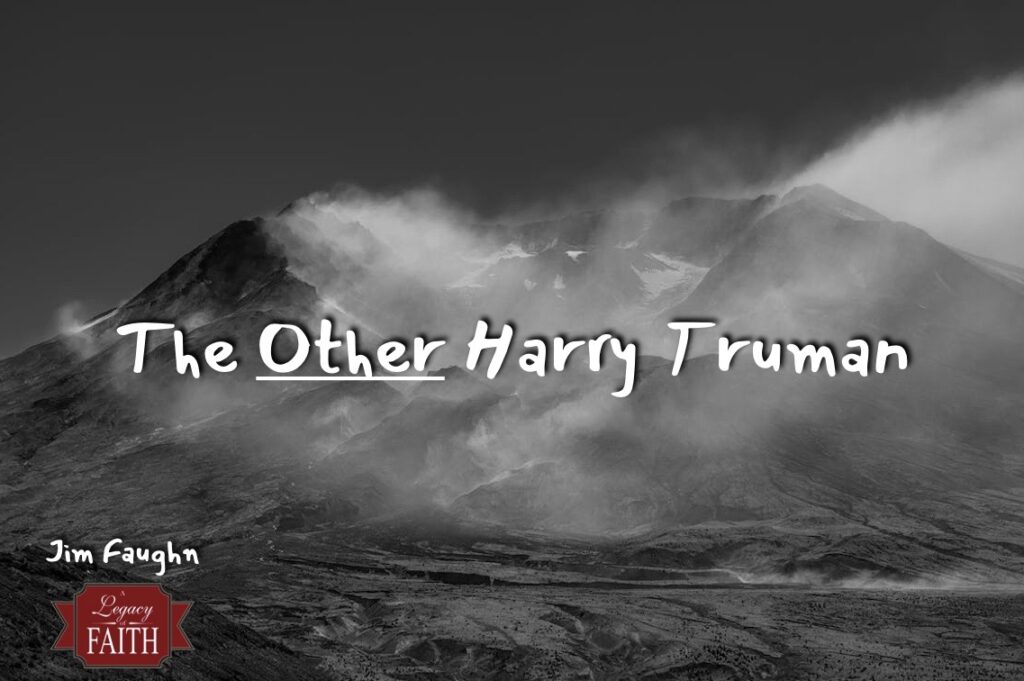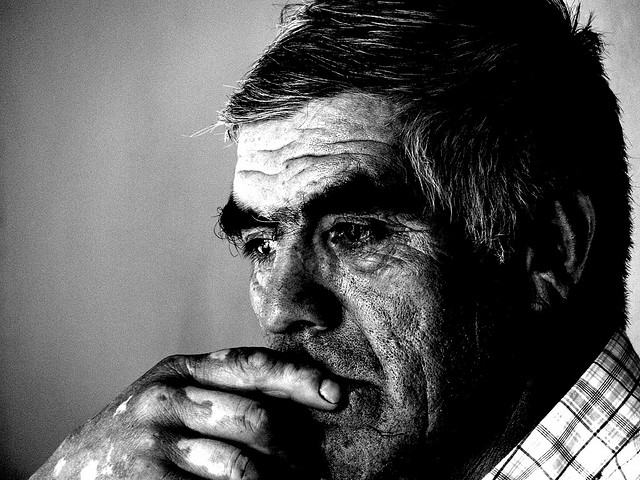The Other Harry Truman
Those of us who have taken almost any class about the history of The United States surely recognize that one of our presidents was Harry S Truman. We may or may not know that he became president when Franklin Roosevelt died and that he upset the candidate for president that “conventional wisdom” thought would win the election of 1948, but we at least recognize his name.
Recent events have caused me to remember another Harry Truman — Harry R. Truman. The news about Hurricane Ian brought him back into my mind. It had been forty-two years since I first heard about this Harry Truman. I’ll admit that I had to do a little digging to make sure that I had some of the facts correct about him, but I did have the name and the basic story correct after all of these years.
When any sort of natural disaster takes place, there seems to be a sort of a cycle or pattern in the news coverage of those events. One type of story that seems to be a part of that pattern has to do with people who either did not heed repeated warnings or delayed any evacuation until the disaster happened. Some of these people become part of a rescue effort. Some, unfortunately, lose their lives. That latter fate was true with regard to Hurricane Ian and it was true with regard to Harry R. Truman.
In 1980, Mr. Truman owned and operated the Mount St. Helens Lodge on Spirit Lake just north of Mount St. Helens. To those of us who were around in 1980, the words “Mount St. Helens” are significant.
We may remember that, although it was (and is) classified as an active volcano, not much had happened for quite a while. That began to change in March of 1980. There were indications of increasing activity. We may also remember the repeated warnings that something significant was going to happen. There were various “guesstimates” about exactly what would happen and what the significance would be, but people were warned that whatever was about to happen would not be a minor event.
Mr. Truman heard all of those warnings (and probably a lot more than most of us heard). However, he told anybody who would listen, including various law enforcement agencies, that he was not leaving the place he loved so much. He became somewhat of a celebrity. He was interviewed by members of various news agencies. People (school children especially) wrote to him and tried to encourage him to change his mind. He adamantly refused to leave. According to some material I’ve read, he tried to convince himself that either the predictions were wrong or that any devastation would be on the opposite side of the mountain from where he and his lodge were located.
The following information can be found on britannica.com:
On the morning of May 18, an earthquake with a magnitude of 5.1 on the Richter scale triggered a gigantic landslide on the mountain’s north face. The north slope fell away in an avalanche that was followed and overtaken by a lateral air blast, which carried a high-velocity cloud of superheated ash and stone outward some 15 miles (25 km) from the volcano’s summit; the blast reached temperatures of 660 °F (350 °C) and speeds of at least 300 miles (500 km) per hour. The avalanche and lateral blast were followed by mudflows, pyroclastic flows, and floods that buried the river valleys around Mount St. Helens in deep layers of mud and debris as far as 17 miles (27 km) away. Meanwhile, simultaneously with the blast, a vertical eruption of gas and ash formed a column some 16 miles (26 km) high that produced ash falls as far east as central Montana. Complete darkness occurred in Spokane, Washington, about 250 miles (400 km) northeast of the volcano.
Mr. Truman was among the fifty-seven known casualties of the eruption on that fateful day. I’m sure that I’m not the only one who wondered why Mr. Truman refused to heed the warnings and get to a place of safety. We may also wonder why people didn’t take advantage of warnings concerning Hurricane Ian or any number of other predictions of life-threatening events.
There are any number of answers to the questions we may have. None of those answers did Mr. Truman any good. He was last seen a day or two before the events described above took place.
As tragic as that is, many people ignore, overlook, or minimize repeated warnings about something much more important than the loss of life. I am, in no way, trying to minimize the importance of our physical lives, but the fact is that our souls are so much more important.
Please think about the value of your soul and the credibility of God’s Word as you read the words below. As you read them, you may remember that, when Peter was inspired to write them, people were doing what many today are still doing – actually scoffing at any suggestion that the Lord would return in judgment.
The Lord is not slow to fulfill his promise as some count slowness, but is patient toward you, not wishing that any should perish, but that all should reach repentance. But the day of the Lord will come like a thief, and then the heavens will pass away with a roar, and the heavenly bodies will be burned up and dissolved, and the earth and the works that are done on it will be exposed.c
Since all these things are thus to be dissolved, what sort of people ought you to be in lives of holiness and godliness, waiting for and hastening the coming of the day of God, because of which the heavens will be set on fire and dissolved, and the heavenly bodies will melt as they burn! (2 Peter 3:9-12)
The decision made by Harry R. Truman led to unbelievably tragic consequences. Those consequences pale in comparison to those awaiting so many because of an attitude about things of an eternal nature.
Receive All Our Posts Via Email
AUTHOR: Jim Faughn



